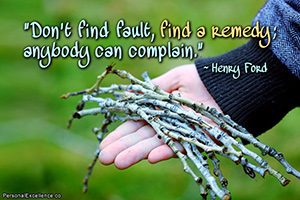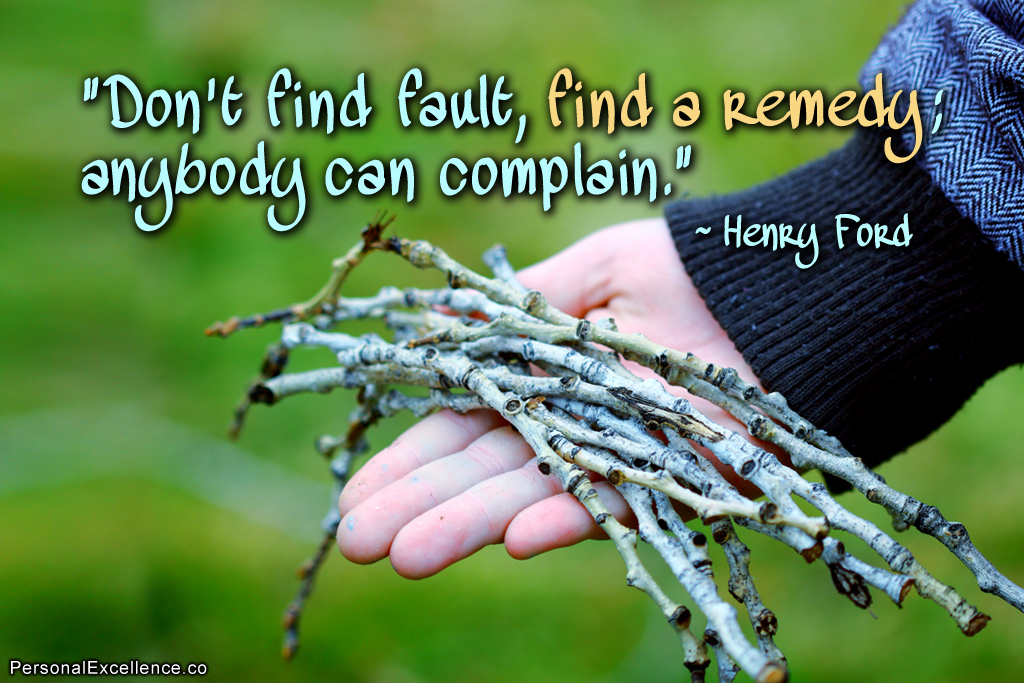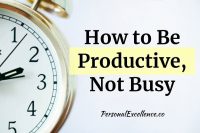
FOMO — or the fear of missing out — has become a pattern in today’s world. We are constantly on our phones, glued to social media feeds and checking what other people are up to. The more updates we see, the more anxious we feel. We see people living this exciting life, achieving this new milestone, doing that exciting activity. We feel like we are missing out, that we are not living a good enough life, and we have a compulsion to keep up.
So we keep up… buying, keeping up, and absorbing as much information and updates as we can. And this addresses our anxiety… or does it?
Can you relate? Well, today’s episode is just for you. :) In this episode of The Personal Excellence Podcast, I cover
- What is FOMO [0:29]
- Signs of FOMO [1:27]
- 4 reasons why FOMO exists [4:39]
- 5 strategies to tackle FOMO [15:06]
Listen to the podcast via my online player, Apple Podcasts, Spotify, Google Podcasts, TuneIn, Amazon Music, or subscribe directly to my RSS feed.
If you've found The Personal Excellence Podcast useful, I'd really appreciate it if you can leave an honest rating and review on iTunes. Your review makes a difference and will help spread the message of conscious living to the world. Thank you!
Fear of Missing Out [Transcript]
Welcome to The Personal Excellence Podcast. The show that’s all about helping you be your best self and live your best life. Now, your host, Celestine Chua!
Celestine Chua: Hey everybody, welcome to The Personal Excellence Podcast! This is Celestine Chua from PersonalExcellence.co. Today we’re talking about the fear of missing out, otherwise known as FOMO.
Have you heard the term FOMO before? I’m sure some of you have. But if you haven’t, FOMO refers to the apprehension that one is not in the know, or one is out of touch with some event, experience, or interaction. This compels the person to constantly want to know what’s going on, what’s happening out there, and whether they’re missing out on something.
In today’s world, FOMO exists on some level in many of our social media habits and online behavior — even if you don’t realize it. This is why I want to discuss this topic today because I feel that FOMO has become such a prevalent issue.
Some Signs You Have FOMO
Some signs of having FOMO include
- Continually refreshing your social media newsfeed to see what’s going on, what’s the latest update, and the new things that people are discussing right now.
- Feeling the need to know what so-and-so people are doing. This can include the people in your social network. It can also include the people you don’t know, such as celebrities or famous people.
- The constant feeling that you’re not satisfied with your life, and because of that you keep looking outward at what others are doing.
- Feeling that perhaps you are not doing enough.
So as opposed to enjoying your time right now with the people you are with and the life you have right now, you are constantly checking and seeing what others are up to, because you feel that otherwise, you may be missing out.
Why FOMO is Unique to Our Era
I feel that FOMO is a phenomenon that’s unique to our digital era. FOMO as a term was coined in 2003 and it was added to the Oxford English Dictionary in 2013. That’s just a few years ago. So why is FOMO unique to our era?
Imagine in the past, way before the internet was invented. Say it’s a Friday night and you just finished work. What do you do?
Perhaps you would read a book. Perhaps you would do some simple activities. Maybe you like to knit so you knit. Maybe you watch a video of your favorite movie. Or you have a quiet conversation with a loved one. So you do that and you sleep. And you could be feeling pretty satisfied with your Friday night, doing something that you like.
Nowadays, everybody is connected. You can see what anybody is doing and everyone’s updates. With the Internet today, typically what happens is this: It’s Friday night. You could be browsing your social media newsfeed and your Instagram newsfeed.
- You see this professional coach or guru going to some event, achieving some new level of success, getting this new interview, living the high life.
- Or you see this celebrity, this person partying at some gala event, living in some mansion, doing some new photoshoot, or having some brand new product launch.
So you could be excited and feeling satisfied with your Friday night, reading a book, knitting, talking to a loved one, whatever it is. But now you are left feeling like you’re boring and lousy because you’re not doing all of these things that these “exciting” people are doing. And that, in essence, is FOMO.
4 Reasons for Fear of Missing Out
I see FOMO as the result of a few factors.
1) Prevalence of Fast-Speed Internet
First, the wide prevalence of fast-speed Internet. It’s incredibly easy to get information today. In the past, when the internet was new, it was slow and we were on dial-up modem. Some of you guys may still be on dial-up.
But in the past, dial-up was the norm. Over the years, as the government, societies build up the infrastructure, high-speed internet became more easily accessible and at a lower cost. Many people around the world have fast internet today.
So you can easily get information at the click of a button. With that, you can easily see what people are doing with the click of a mouse. What Brad Pitt is doing right now, what Angelina Jolie is doing right now, what the Kardashians are up to. All this information, just easily accessible at the click of a button.
Because of that, you can instantly know what others are doing. This starts this whole comparison cycle and behavior because now you can easily compare and put side-by-side what other people are doing and what you are doing. This starts to create a feeling of lack, a feeling of inferiority, that maybe you’re not good enough.
2) People displaying a perfect version of their lives
The second factor would be people using the Internet to exhibit their best selves. Along the way (in the 2000s), the Internet became this platform where people get to share about themselves. But now, instead of people sharing about themselves, people are using the Internet to exhibit a very manicured version of themselves. Sometimes this version may not even be true to reality.
So there’s a very heavy level of self-monitoring and self-altering behavior going on.
We have magazines out there isn’t it? In the media industry, with the magazine editors heavily photoshopping magazine covers, they create this “picture-perfect” version of beauty and very narrow definitions of beauty. That’s the magazines and it’s enough that media industry is doing that.
But now, instead of this being an issue isolated to magazines (and the media), we have people everywhere on Instagram, Facebook, etc. editing the photos that they upload. Instead of it being an authentic moment — which it used to be, where people were genuinely sharing what they were doing as part of connecting with others — now it’s become a situation where people are sharing very edited, manicured, and perfected versions of what’s going on in their lives.
So they could be living their day and essentially doing mundane activities — as with most people living their lives. Some of the things they’re doing will be mundane and usual, nothing to shout about. Then they have this one hour when they are doing something exciting, and then they will take some pictures of that and edit that, make them perfect, add filters, and so on. And just highlight those moments.
When you have people everywhere doing this online, it creates this impression of, Oh this is what’s happening in everybody’s life all the time. So I’m missing out! My life is not good enough! This creates a really skewed and warped sense of reality.
3) Existing social issues magnified by Internet
The third factor contributing to FOMO is there are simply existing (social) issues that the Internet exacerbated. As opposed to the internet creating problems, I would say there were existing problems such as loneliness or low self-esteem. The Internet, with the way it has brought the entire world closer and stripped away many boundaries, exacerbated this issue as we no longer have a strong sense of boundary or space. People who already feel lonely or low in self-esteem may feel more isolated, while people who felt slightly lonely at times may have this feeling magnified in the presence of everyone else’s success and “exciting” life.
4) How today’s websites are designed
The fourth factor contributing to FOMO is how companies have designed their websites.
To understand how this works, it boils down to this underlying principle. Essentially, most companies operate on profit. Well, the essence of a company is to be profitable because if you’re not profitable, you’re out of the game.
When companies focus on profit as their sole objective — without regard for their audience and adding value to their lives — their number one goal becomes to maximize each user’s time spent on their website. This is particularly true for platform companies like Facebook, Snapchat, Netflix, Instagram. The more time you spend on their site, the better it is for them, the more advertisers they can get, the more revenue they can get.
What’s the best way to maximize the time spent? By maximizing interaction, maximizing the number of engagements you (as the user) have on their site, be it by making you click from one place to the next within their site. Whatever keeps you within the site and gets you clicking, interacting, commenting, and spending as much time as possible on the platform itself — whether it’s Facebook, Snapchat, or Netflix — even if it’s to the point of detriment of your well-being, your productivity, or the utility value you’re getting from the website.
This is particularly so when a company starts to focus on profit and what it gets off its user base rather than having the users’ best interests in mind and designing its services around them. This is where profit supersedes value — where companies focus on profit rather than giving value, as opposed to creating value as the priority and earning profit as a result of that.
So platforms are now creating site designs to build addiction. We have Facebook — or any of these large attention companies really — having large teams of growth hackers, where their sole job every day is to get together to discuss, find ways to hack your brain, and figure out how to break down your mental barriers, so that you’re constantly glued to their platform. Getting you to stay on their site, making you feel compelled to come back, and making you feel, Oh I’m missing out if I’m not coming back to the site. I’m missing out if I’m not clicking this notification.
So it could be
- Facebook popping up a message and saying, “You haven’t been here for a while” or “You haven’t posted on your page for a while. Do you want to interact with your followers (if you have a Facebook page)?”
- Snapchat. They introduced a streak feature in the past couple of years where they encourage you to continue this streak of messaging someone consecutively each day or over a period of days, so that you can maintain the streak.
Some of these are questionable. Because, okay, Snapchat has this streak feature to message this number of times or this frequency with someone. But does this help forward your relationship with that person or help you live a better life? These are questions to ask ourselves.
So we have these companies coming up with all kinds of strategies. Many of them implicit — you don’t know they are happening unless you take a step back to think. Or unless you run a website yourself, where you become conscious of these issues. Ultimately, they are there to suck you in. To get you addicted. To make you feel like you’re missing out. Hence, the feeling of “missing out.”
So you constantly refresh your social media feeds to see what you are missing out. You feel, Okay! When I refresh and the thing is loading in my browser, I’m doing something with my life. Something is happening and I’m seeing all these updates! The page is now loaded, you see this barrage of new updates. Okay! Now I feel marginally fulfilled. Then 30 seconds later, you are back doing the same thing, loading the webpage and seeing the next wave of updates.
Social Media Updates — Junk Food for the Brain
All these are very much what I call, junk food for the brain. It’s like you eat junk food, and maybe for a few seconds, you feel satisfied. After a while though, you feel, Hey I need more! Like, This is not satisfying me.
Why is that? It’s because these little pieces of updates are inherently not satisfying or nourishing. Junk food is not nourishing for our body. Media news sites and the attention companies, or any of these websites using these strategies to maximize attention and it can include content mills with very low-quality articles, designed to make you click from one thing to the next — these are junk food for the brain.
When you have all this junk food content and you’re consuming it, the quantity may be huge and there may be many pieces of such content everywhere. But because it’s not nourishing for the brain, you have to keep clicking and refreshing and returning just to keep this “nourishment “going. Because it’s so ungratifying, you’re not being fulfilled, and hence you need to do it so many times.
Compared to if you are reading a piece of high-quality content, you can be just reading a short amount and that’s food for thought. There’s something you have gained, that makes you think for the next few days.
So these four factors contribute to the phenomenon of FOMO. Even in the online business world, FOMO has created the shiny object syndrome. Where you feel this need to constantly buy that next app, that next plugin, that next web service, hoping that you’ll create that next big breakthrough in your business. I’ve shared before in an article on the magic bullet — there’s no secret sauce or magic thing that’s going to transform or create some huge results. Ultimately, it’s back to the same fundamentals and it boils down to the strategy that you use and how you approach your business.
5 Strategies to Tackle FOMO
So how can you tackle FOMO? I have 5 strategies.
1) Stop comparing yourself to others
Stop comparing. I know it is difficult because all this information about people’s lives is everywhere, and social media companies have made it so easy for us to access this information. When you come online, you have all these companies hungering to grab your attention, even if it’s to the detriment of your productivity. You have all these companies fighting and eliciting you to, “Come and click, come and click over to my website.” It becomes really difficult because you are fighting all these forces: the macro forces and also the internal force in you, where perhaps there is a sense of dissatisfaction or feeling that, Okay, maybe there’s something out there that I need to know.
So I know it’s difficult, but it is important to stop this behavior from within. This can include limiting your social media usage and controlling the way you use social media which I’ll talk about in tip #3.
With regards to not comparing, two episodes back I talked about our unique path in life. In that episode, I talked about how everybody is on a unique path. You are on your unique path. I am on my unique path. We are all on our unique paths in life. Don’t feel like you need to compare because perhaps you’re not making the best of your life.
Sure, you can benchmark. Benchmark meaning you reference and look at what others are doing as an indication of what you could be doing.
But don’t compare in that you keep looking towards what other people are doing as the reference point for where you should be. Because we are all different. We all have our unique paths. We have our individual aspirations, our individual paths to realize.
You can be the fastest swimmer on Earth. If you keep looking at the bird in the sky and wondering why you can’t fly, you’re just putting your God-given talents in swimming to waste. This is the same between the bird and the swimmer. The bird can be in the sky flying, with the ability to fly and soar, but instead, it looks at the fish in the sea and wonders why it can’t swim.
So the fish gets to explore the wonders of the marine world. The bird gets to explore the wonders of the sky. Everybody is on their individual path to self-actualize and self-realize, and this path may not be comparable in many instances because it’s just unique.
Unfortunately, we live in a society right now with the tendency to diminish and condense people to a metric, and try to simplify human worth or value to some number or statistic. But there’s something for you to keep in mind: We are not statistics and we should not be condensed to a number. Even if society or government or media tries to do that to us, we are not that. Each of us is unique and we are unique individuals on our unique path to contribute and create massive value to the world.
Always remember that and don’t compare yourself to other people. Don’t try to alter yourself or shape your life so that it looks like other people’s lives, because you have your life and you are your unique individual, and it’s about embracing that.
2) Fill your schedule with meaningful activities
My second tip is to fill your schedule with meaningful Quadrant 2 activities. I talk about this in my article Put First Things First. It refers to the activities, tasks, and goals that are the most important in your life, but not necessarily the most urgent.
Why aren’t they the most urgent? That’s because the most important things in our life rarely become urgent until it’s too late. They include our health, our relationships, our biggest life aspirations. Fill your schedule with meaningful Quadrant 2 goals or tasks, whatever they may be. This requires you to take a step back to really think, reflect, and ask yourself:
- What are my Quadrant 2 goals?
- What are my most important life goals?
For those of you with Live a Better Life in 30 Days, many of the tasks (especially in Week 1) are about goal setting. Assessing your life right now. Identify what is your ideal life, your ideal goals. Creating a life map and your vision board. And so on. All the 30 tasks in the program are meant to get you to think about the different Quadrant 2 aspects of your life. For those of you with the program, review the tasks inside, and start thinking about your Quadrant 2 goals.
When your life is exciting and filled with meaningful Quadrant 2 activities, you will automatically not be interested or very interested to see what other people are doing. It doesn’t mean that you shouldn’t know what others are doing. To do that would be to isolate yourself from the world and that is just swinging from one end to the other. But you won’t have this constant or unhealthy compulsion to keep seeing what other people are doing and filling your life with this filler information. Because you are living your life. These Quadrant 2 activities could be, say, being with your parents. Having a meal with them. Being with your loved ones. Social activities. Volunteering work.
One of my recent coaching clients went on a six-week volunteer trip in Taiwan. He’s from Australia. He was in this rural village at a homestay, taught at a rural school, and ran some conferences. From this trip, he gained so many insights about his future goals, what he wants to do for the next 10 years and beyond, and what he wants to do as his life direction. That’s because the work was inherently fulfilling and it was something that he was personally interested and passionate about. Pursuing and doing this gave him insights on what he would want to do in the future. That was a huge Quadrant 2 activity. He could have spent these six weeks in a frivolous way or just doing nothing — which is fine too because sometimes relaxing or taking time out for ourselves is important. But he could have just wasted six weeks away. Instead, he used it in a meaningful way, in his own definition. That helped him gain so much insight on what he wants to do for his long-term goals, his 10-year goals, and his future life direction.
Quadrant 2 activities can also include exploring a new place you haven’t been to before. Learning a new skill. Doing something you like, whatever it is.
So fill your schedule with these meaningful activities, as opposed to filling the entire day with refreshers of your social media newsfeed or what Kylie Jenner is doing. Ultimately, this won’t fulfill you. But taking action on your personal goals in life? That’s going to fulfill you.
3) Cut down on social media usage
My third tip is to cut down on social media usage. I mentioned just now that the Facebook newsfeed is like fast food for the brain. Tickles you and keeps you busy. May taste well in the first bite. May even make you think that you’re satisfied. But there’s nothing much there and it will ultimately kill you in the long run.
That’s why people need to keep refreshing and seeing their newsfeed so regularly. Because it’s inherently not fulfilling. That’s why they need to keep seeing it over and over and over again, hoping that it will bring a different result each time — except that it doesn’t. It’s not much different from pulling the slot machine at the casino. In fact, many elements of Facebook and a lot of these leading social media sites today are designed with reference to the addictive elements of a casino or gambling dens.
To avoid being in this negative spiral, limit the time you spend on social media. Think about it: when you are in Facebook — and I’m using Facebook as an example, but it can be any website with the agenda to maximize a user’s attention without taking into consideration their personal goals and life. So you could be in Facebook’s “walled garden,” and this is a common term used to describe the way Facebook has designed their site. It’s like a “walled garden,” to keep you inside their universe and away from the outside world. Once you step into Facebook’s “walled garden,” it becomes an uphill battle to gain control of your conscious self and you have lost the game. Because now you’re up against this seemingly innocuous but very meticulously and strategically designed website, designed to suck you in and get you to stay there as long as possible.
The best way to avoid this is to limit the time you spend on social media. 30 minutes, 10 minutes, I don’t want to set a specific time limit because it depends on why you are using social media, whether there’s something you need to get out of the site at the moment. It could even be not using social media on some days. So it is subjective. But the underlying principle is to limit the time you spend on social media. Because when you step inside, you’re going up against 100 or 1000 different strategies put in place to suck you deeper and deeper into the site. Because all of us have a limited amount of mental energy per day, it becomes a downward spiral. It very quickly drains you, and soon you find yourself in this loop where you are just refreshing and seeing the next new update and so on.
So, limit the time you spend. And remove notifications except for crucial ones or for crucial apps. Most websites and mobile app notifications today, they’re useless. They don’t serve a role in our life except to get you to go back to the app. They don’t tell us about anything important or significantly urgent. You can check these apps once in a while, whenever you remember to. But there’s no real need to have notifications alerting you every single time someone messages you or some update is rolled out. This is a call that you make, but I personally feel that most notifications today don’t have a role and they are not really useful.
4) Stop following people who promote an unhealthy lifestyle
My fourth tip is to stop following people who promote an unhealthy lifestyle. Again this requires you to be conscious of how you are using social media and how you’re approaching your Internet usage. Take a step back and evaluate the people you follow and the kind of lifestyle and messages they promote. This includes people on Instagram, Twitter, Facebook, YouTube, websites and so on.
As you are doing that, ask yourself:
- How do you feel when you see the updates?
- Do you feel inspired or do you feel bad or negative about yourself?
- Does it make you feel like you’re not doing enough when you see these updates? And not in a good way but in a negative way?
Once I was following this guru. At first, it was interesting, seeing his updates. But after a short period of time, it started feeling “off.” I realized that he was constantly talking about his achievements, and not in a once-in-a-while way. It’s fine to talk about what you’re doing and what you’re achieving — it’s fine to share that.
But his updates felt sort of like he was… bragging? It was constantly namedropping and talking about how he’s really awesome for having achieved certain things above and beyond other people. After a while of seeing that, it started to become toxic. Because he created this feeling like I wasn’t doing enough, or maybe I wasn’t doing enough to build my business.
So instead of it being a positive experience, it became a toxic and negative one where seeing his updates made me feel like somehow I wasn’t good enough or that I wasn’t doing enough. I wasn’t sure if it was just me, so I asked two other people who knew this person and both of them got the same vibe too. The overall sense was an off-putting one. Looking at this person’s updates made me feel a great sense of FOMO.
After that, I stopped following this person because it was a negative experience all in all. I wasn’t getting any positive messages from it. For me, as someone who has a platform and shares messages with my audience, I have a certain standard in the kind of messages I send out and the intention of my messages, and I felt like this person’s updates wasn’t congruent with what I expect of my own platform.
Or it could be a totally different type of message. For example, you could be following people who promote a materialistic lifestyle or a way of life that is not very healthy or not in line with your values. If so, you want to limit your exposure to these people. Maybe they are constantly getting you to buy things, buy material goods. Or showing off branded stuff or insinuating that somehow having certain branded goods or possessing certain physical possessions validate yourself or a certain part of who you are… which wouldn’t be a message that you want to carry.
When you are exposed to and following these people, this would keep creating the FOMO feeling. This fear that you’re missing out. That you are not buying this thing (but you should). That you’re not being good enough. That you’re not living it up. That would naturally perpetuate the feeling of FOMO in you.
Another example: with the people you follow, maybe they present a very skewed version of reality. Maybe they constantly photoshop images or present a very cherry-picked aspect of life. And this cherry-picked aspect is a little bit twisted and not accurate to reality. So you’re no longer learning or seeing an authentic side of the world and people’s lives, but a very manufactured version of reality. This will naturally skew your perception of the world.
When you are following people and their updates, know that these are things that you are allowing to enter your consciousness. Ask yourself: Are these the kind of people you want in your living room, with you? Are these the people you want right beside you, in your daily life? If no, why do you want to see these updates on such a regular basis?
So be conscious of who you follow, the updates you see. If people’s updates keep making you feel negative, fear-based, that somehow you’re not good enough, that you’re missing out, that you should be doing/buying/getting that thing, take a step back and ask yourself: Are these the kind of people you want to follow?
Maybe’s it’s good to unfollow them. Limit your exposure to these people. Instead, follow people and content that inspire you to improve, as opposed to making you fearful or feel that you have a lack, because that is not true at all.
5) Consume information in a targeted way
My fifth and last tip is to consume information in a targeted way. The Internet today is characterized by an explosion of information. We have all kinds of information around us now. You want to be conscious of how you consume this information.
You want to receive and focus on content that’s tailored to you, that helps you in your life. For example, some of you may be in Facebook groups. When you join a Facebook group, Facebook automatically makes you follow that group, that group’s updates, and automatically adds you to the group’s notifications.
The way I do it is whenever I join a group, I will immediately unfollow the group’s updates and remove the group’s notifications. So I’m still in the group, but I just don’t see its updates by the second. Instead, I go into the group whenever I want to look at what it is up to. Why do I do that? This helps me to be conscious of the kind of updates I see when I enter Facebook’s main page. So firstly, I limit my usage of Facebook. Next, when I enter Facebook, I want to be conscious of the kind of updates I see on the front page. Facebook has its own algorithm and it cherry picks and selects whichever updates fit that algorithm. Typically these are updates focused on increasing and maximizing engagement, and that’s not necessarily what I want. Sometimes I want to see everything that the group has so far, discussions, etc. so that I can zoom in on the ones that are relevant to me. As opposed to having an algorithm that pre-selects and pre-filters, and the pre-filtered material may not be what I’m looking for.
So being conscious in terms of how you consume information. You pick and choose the sites that you want to see, the updates you want to see, the groups that you want to focus on for today or for a week. That’s the same for websites you follow, newsletters, YouTube channels that you subscribe to. You don’t need to be following everything. You don’t need to be subscribed to everything. You want to ask yourself: Which are the [sites/channels/etc.] that give you great value? Where you genuinely feel uplifted by the content? And the content helps you to live a better life, live a conscious life?
These are the channels/websites/newsletters that you want to stay subscribed to. Don’t worry about missing out because there’s just so much information out there. Your role today is to pick what works for you. Tuning into the information, the updates, the activities that are relevant to you. Rather than feeling that you need to be in the loop of everything. I feel the websites today — how conglomerates have designed their websites — are created to elicit that feeling that you’re not seeing enough, that there’s more content you need to see.
Because of that, we need to learn to draw our boundaries. Deciding that, Okay today I just want to consume this ABC piece of content. And that’s because this channel is something that I like, this website is a high-quality one. Hence I consciously choose to read and follow these things. Beyond that, I’m doing other stuff.
Closing Note
So that’s it for today’s episode. I have a few articles that are relevant to today’s episode that I’ll be linking to them in the show notes.
If you have found today’s podcast helpful, I would really appreciate it if you can leave a review on iTunes, and that’s at personalexcellence.co/itunes/. Doing so really makes a difference. It helps to spread the message of conscious living out there to the world. And I feel that is something that we massively need today.
If you are interested in living a better life in just 30 days, check out my 30-day life transformation program, Live a Better Life in 30 Days. I’ve packed my 30 best tasks on life transformation and that includes some of my best exercises that I share with my life coaching clients, to help them discover your life direction, discover their life goals, review how you are doing in your life, evaluate your routine, transform your to-do list, expand your comfort zone, discover their values, and many more. So you can check that out at personalexcellence.co/courses/30dlbl/.
Thank you so much for listening. I truly appreciate you. If you have a question for me, you can post it to me via the podcast page on personalexcellence.co. Until next time, remember: you are beautiful and you are perfect the way you are. Thanks so much guys. And I see you guys in the next episode. Bye guys!
Endnote: Thanks for listening to The Personal Excellence Podcast! For more tips on how to live your best life, visit www.personalexcellence.co









 Thanks for reading. If you like my free articles, join my private email list and get my latest updates and articles sent right to your inbox.
Thanks for reading. If you like my free articles, join my private email list and get my latest updates and articles sent right to your inbox.